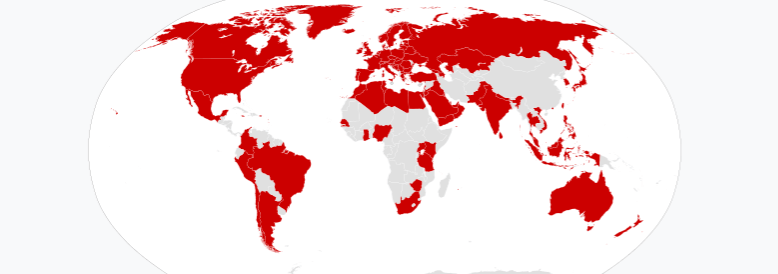Once you’ve built up a strong presence – and a large base of loyal customers to show for it – here in the UK, your thoughts could naturally turn to the subject of expanding overseas. However, the path towards achieving that end could be fraught with a variety of unexpected obstacles.
This isn’t to say that you shouldn’t even attempt the expansion; you simply need to judge each new market carefully and make sure you have the essentials in place. Here’s what to consider…
You need to stay in sight to stay in mind
Yes, the proverb “out of sight, out of mind” is very relevant – at least in the case of global corporate expansion. Did you know that, as recently as 2017, 29% of small businesses still didn’t have their own website, according to Forbes? Without a site, your firm could be leaving money on the table.
If you need a separate IP address for each site you set up for a different territory, take heart that IPv4 leases are available, allowing you to utilise sought-after IP addresses cost-effectively.
Factor in the local market with your SEO efforts
An especially good reason to assign a separate business website to each of the markets where you compete is that you could more easily ensnare people who conduct “near me” searches on Google.
The number of people who do that is higher than you might have realised; in fact, a third of all searches on mobile are location-related. Therefore, remember to get yourself listed on major business directories like Yelp, Google My Business, or whichever directories are relevant in the given market.
Make your social media presence multilingual
Stretching your promotional tentacles into certain territories can essentially entail adding to the repertoire of languages you have learnt. You can’t just assume that all members of your new target market will know the English language, even if it remains the web’s most used language.
Consider, for example, Hootsuite’s warning that, by 2021, 73% of Internet users in India will favour using languages other than English. Besides, over 70% of consumers rely on details in their own language before purchasing. Still, don’t just settle for using translation tools…
While auto-translating technology has seen exciting advances, it remains far from perfect, as attested by such high-profile blunders as HSBC’s “Assume nothing” slogan being mistranslated as “Do nothing”. Hence, you need to invest in skilled translators, with ties in nicely with the next point.
Assemble a team primed for overseas success
This team can range from, yes, translation staff right through to mentors, as Business News Daily reveals. Otherwise, you could too easily stumble in your attempts to follow local rules, regulations, cultures and customs – and those two Cs might not exactly be written down in an easy-to-find book.
This is where opening a local office and recruiting to it from the local territory can pay off handsomely, as your new staff can already be well-versed in its cultural quirks and so help you to avert unfortunate misunderstandings.



